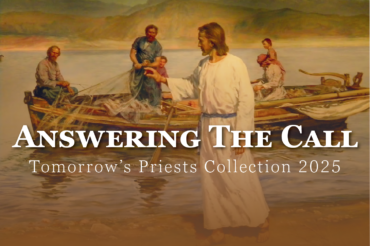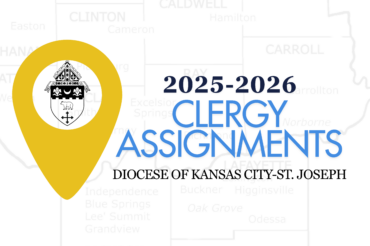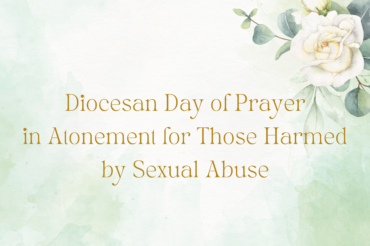“A lotta stuff going on”
“For it is God who said, ‘Let light shine out of darkness’ …” 2 Cor 4:6
This week an old priest friend called when I was unavailable. In his voice-mail message, he said he wanted to catch up with me and then added simply, “… a lotta stuff going on.” Indeed. So much so, I had a bit of a dilemma as to which topic to focus on in this week’s On the Way column. Being practical, I will try to say a bit about three current topics: one local, one national, and one universal.
Visioning Process/Listening Sessions
This week we completed the last of the Listening Sessions held around our diocese, and I want to thank the many who attended. I was pleasantly surprised by the response of the laity—not only the size of many of the crowds (several were standing room only), but also the generally positive, hope-filled tone.
These sessions are a key part of the process we are undertaking together to articulate a common vision for our diocese for the next 3-5 years, along with the three top priorities we will pursue with focus and resources as missionary disciples of Jesus Christ. We will also get very specific and concrete on what we will commit to achieve together in the form of goals. These will be measurable and time-bound and, I hope, somewhat new and bold.
As bishop, I already have some ideas and intuitions about a vision, but I have always benefited from the insights and perspectives of others. The listening sessions will help me, along with my team, to sharpen, adjust, and even change my thinking. My team and I will be working on this throughout the remainder of the year. Thanks for contributing to this important work with your input and ongoing prayers. Please pray for this effort as it continues through the Fall season.
McCarrick Fallout
On a national level, the fallout continues from the recent scandal surrounding credible reports of Archbishop Theodore McCarrick’s sexual abuse of a minor as well as sexual misconduct with seminarians and adults under his care. There are many facets to this story that have implications for the Church in the United States that will play out in the coming months. First, there is the fact that after all these years, there are still victims that need compassion, healing and care, and there are still abusers who have not been brought into the light, bishops among them. Our compassion, care, and commitment to justice for those who have been sexually abused or harassed in the Church cannot wane.
Second, this event exposes the large gap that was left open by the bishops when they adopted the Charter for the Protection of Children and Young People at the 2002 bishops’ meeting in Dallas. I remember wondering, as a priest in 2002, why the bishops were not included under the Charter’s purview. Look for that gap to be addressed at the bishops’ meeting this November.
Third, the McCarrick case brings to light a new dimension of abuse—that of adults who could be susceptible to manipulation and coercion by those in authority over them. A corollary issue includes addressing the dysfunctional dynamic which allowed Archbishop McCarrick to not only continue in ministry, but also rise through the ranks of the hierarchy. Questions are rightly being asked about who knew of his conduct and why action was not taken earlier. We must be able to hold one another accountable and do so without fear.
Finally, I agree with Cardinal DiNardo’s recent statement (see DiNardo’s full statement here), including his assessment that “a spiritual conversion is needed as we seek to restore the right relationship among us and with the Lord. Our Church is suffering from a crisis of sexual morality.” The teaching of Christ and his Church is clear, beautiful, and liberating; do we believe it and try to live it, challenging as it is? This has to be the bedrock of any meaningful renewal and reform.
Death Penalty Development
Finally, this week brought about a modification in the Catechism of the Catholic Church, # 2267, which addresses the death penalty. The new formulation reads:
Recourse to the death penalty on the part of legitimate authority, following a fair trial, was long considered an appropriate response to the gravity of certain crimes and an acceptable, albeit extreme, means of safeguarding the common good.
Today, however, there is an increasing awareness that the dignity of the person is not lost even after the commission of very serious crimes. In addition, a new understanding has emerged of the significance of penal sanctions imposed by the state.
Lastly, more effective systems of detention have been developed, which ensure the due protection of citizens but, at the same time, do not definitively deprive the guilty of the possibility of redemption.
Consequently, the Church teaches, in the light of the Gospel, that “the death penalty is inadmissible because it is an attack on the inviolability and dignity of the person” [1], and she works with determination for its abolition worldwide. (The footnoted quote is from Pope Francis himself.)
While some have reacted strongly against this modification, it appears to be merely an extension and further development of the teaching of Pope Saint John Paul II contained in the earlier iteration of the Catechism, when he declared that cases in which the state must resort to the execution of an offender as an absolute necessity “are very rare, if not practically non-existent.” Pope Francis is declaring that circumstances have changed even more to the point that today, and in continuity with earlier Church teaching, resorting to the death penalty is now “inadmissible.”
The Holy Father has not declared that the death penalty is “intrinsically evil,” but that current circumstances make it no longer a necessary, and therefore, admissible option. (See explanation from the Congregation for the Doctrine of the Faith here.)
Much more could be said on this and all the topics above. As they say, “stay tuned,” there’s a lot of stuff going on.
+ Bishop James V. Johnston, Jr.
Catholic Key, August 10, 2018 issue
Pope Francis’ August Prayer Intention
That any far-reaching decisions of economists and politicians may protect the family as one of the treasures of humanity.Bishop Johnston’s August Prayer Intention
For all those who suffer from Alzheimer’s Disease and those who care for them.





